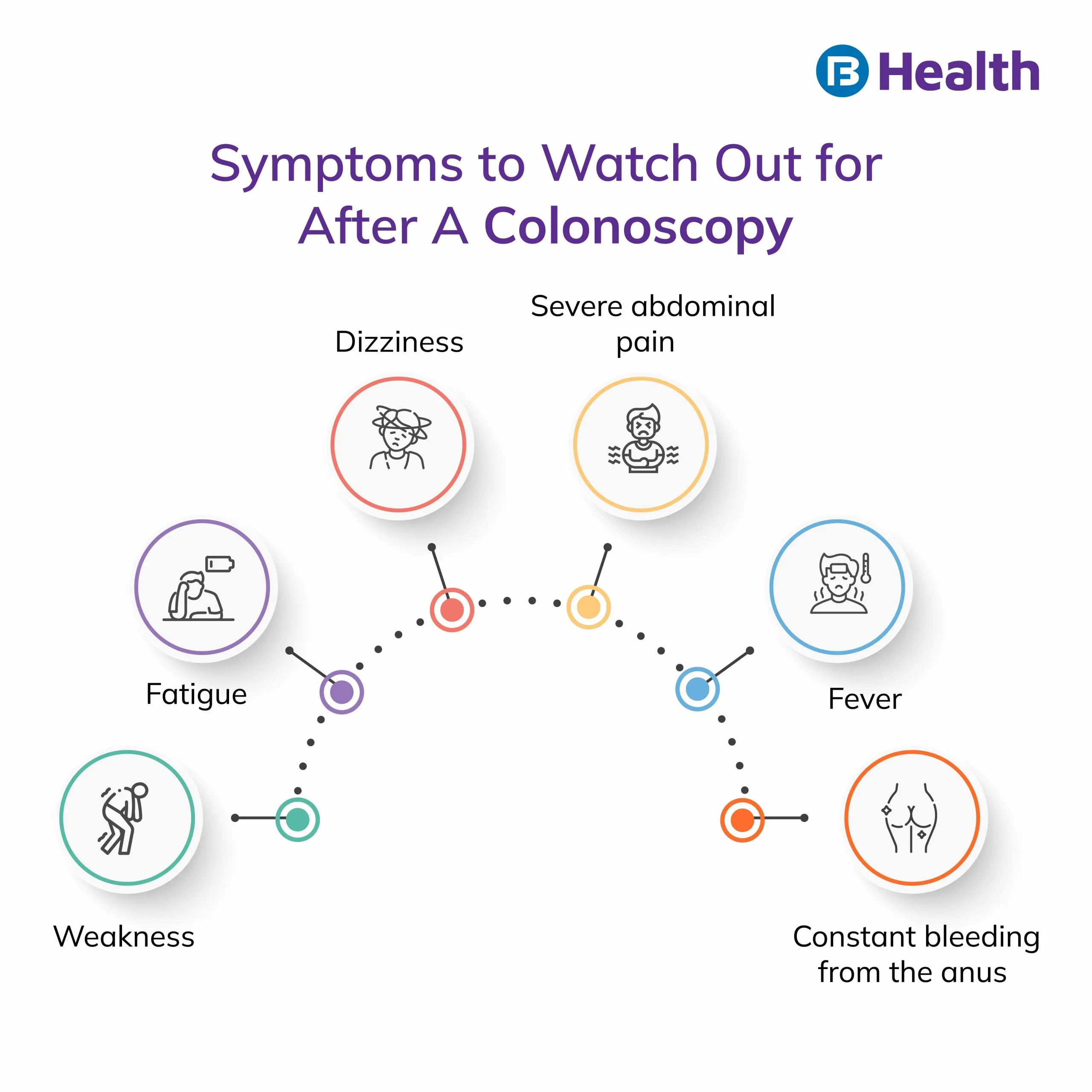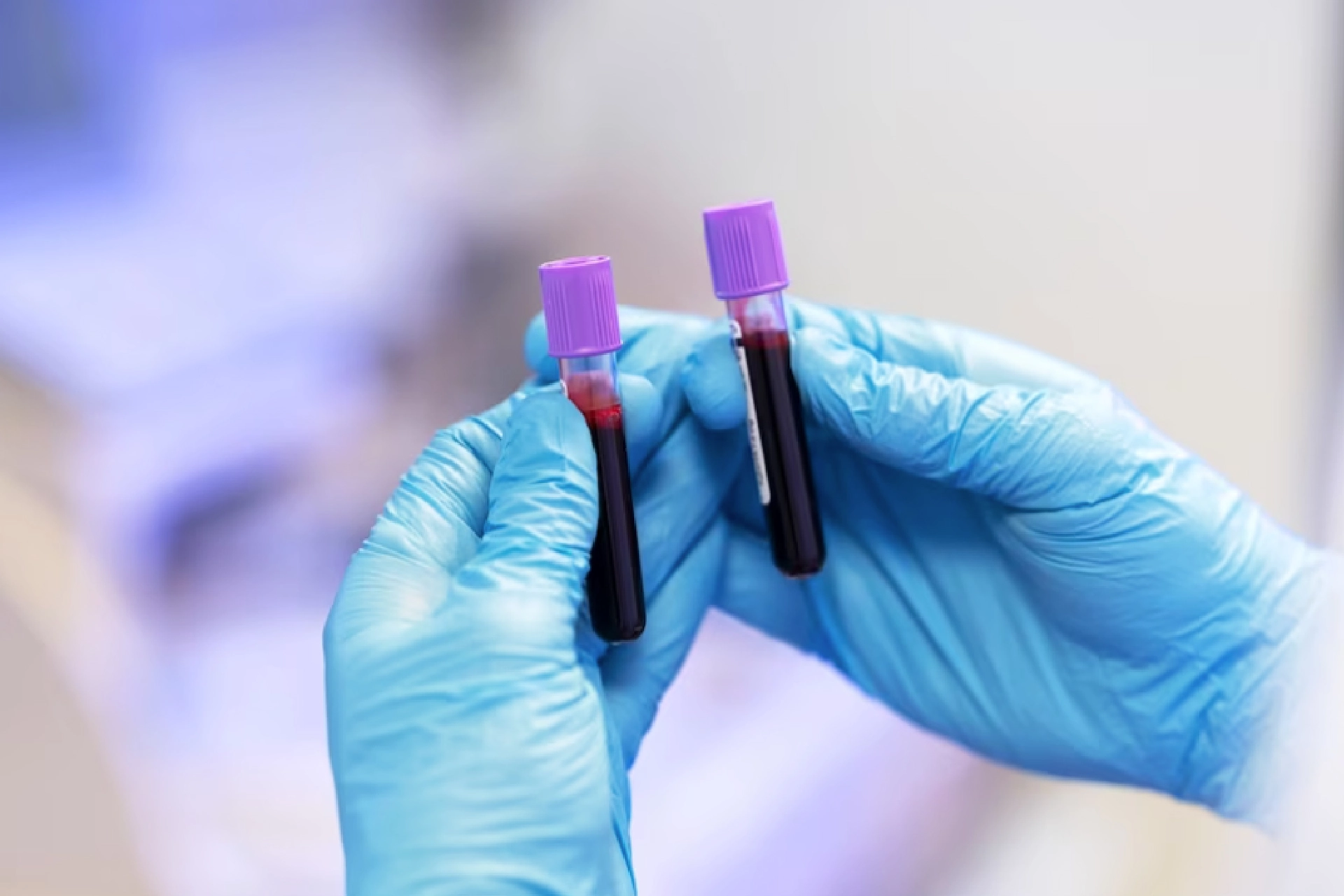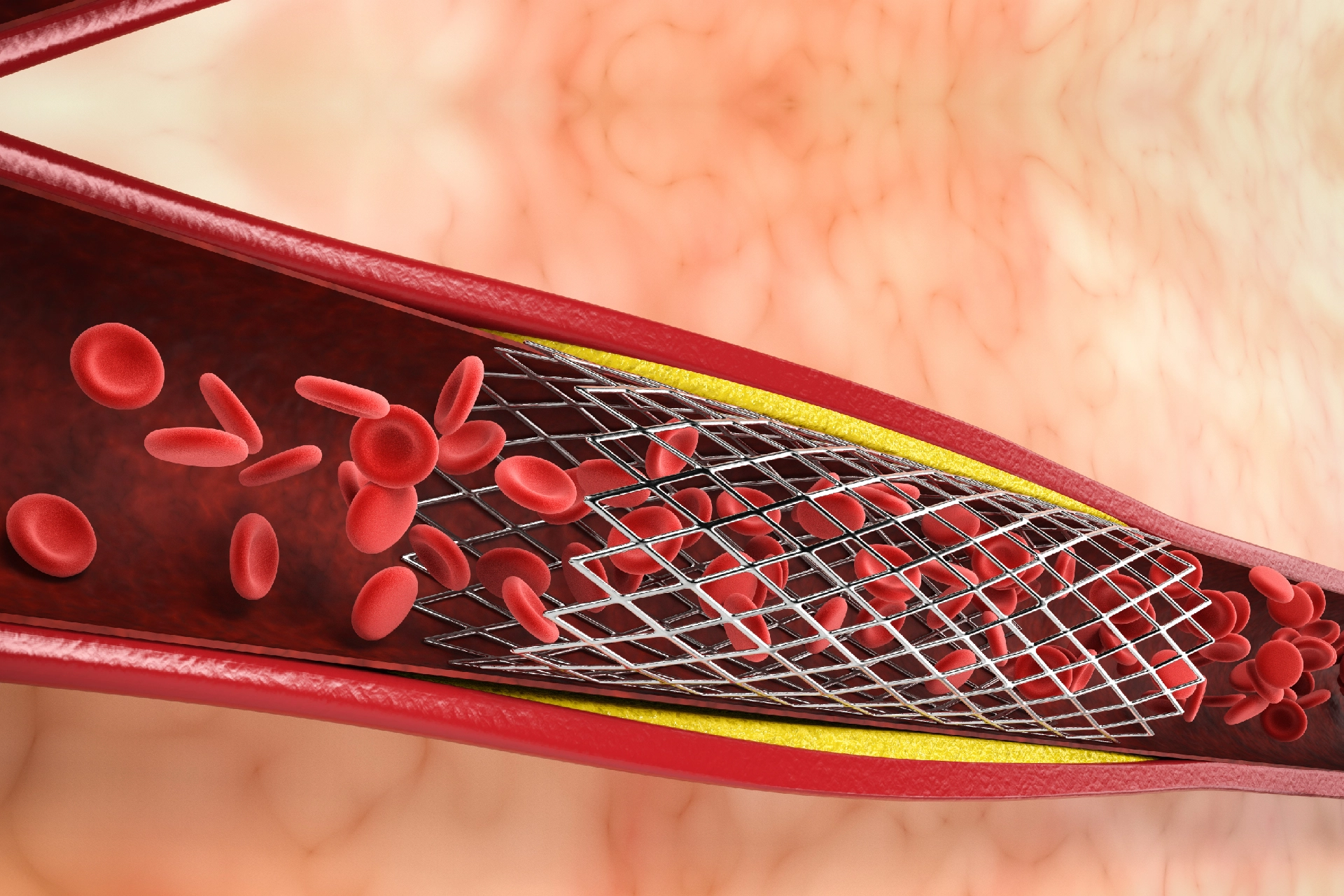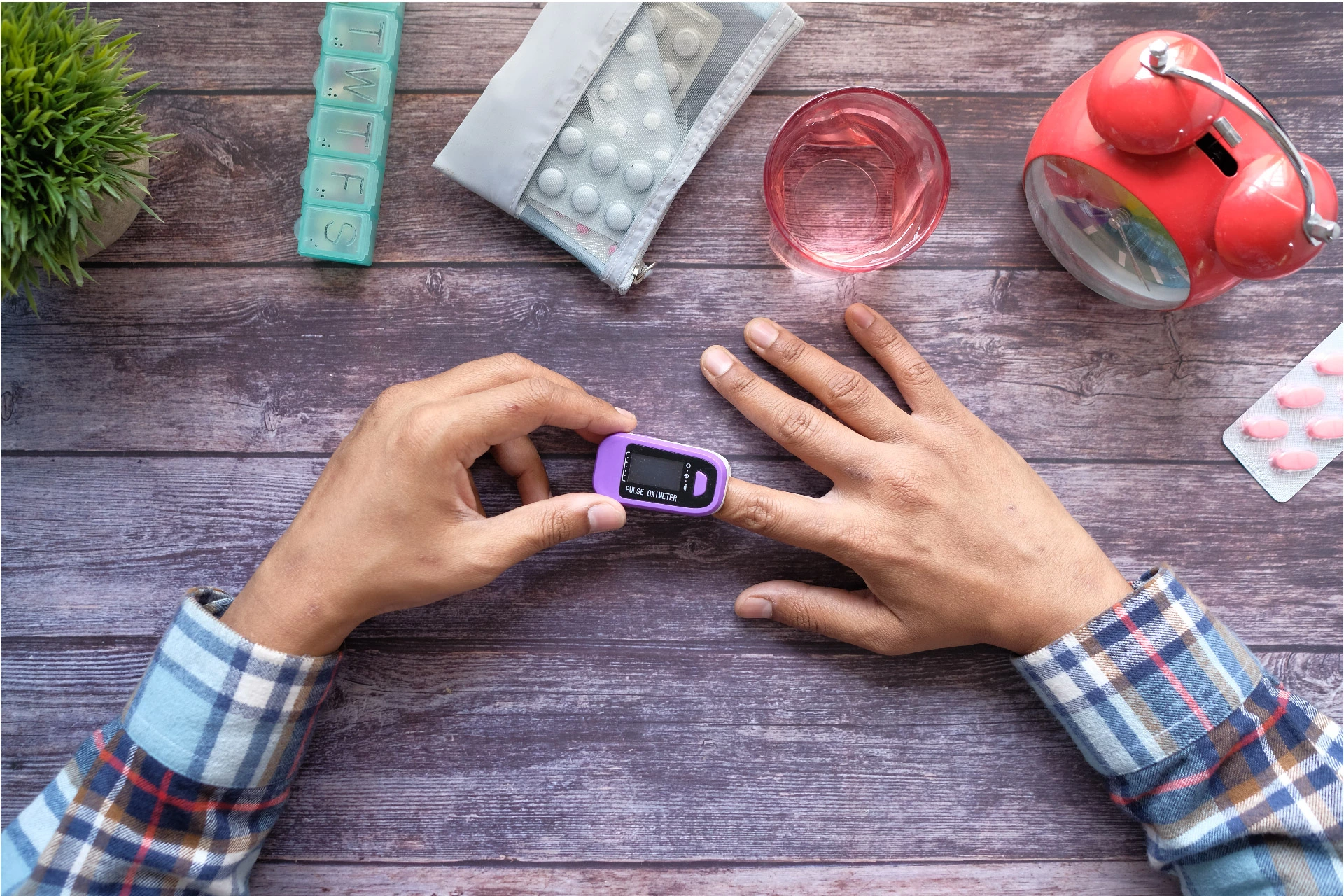Health Tests | 5 min read
Colonoscopy: 4 Important Things You Should Know About It
Medically reviewed by
Table of Content
Key Takeaways
- Colonoscopy can help diagnose intestinal disorders
- Preparing for colonoscopy requires you to eat laxatives
- Colonoscopy procedure can last about 45 minutes on average
Colonoscopy is an examination of your large intestine, allowing doctors to look into it. The procedure is done using a flexible camera that is affixed to a tube that is lit. Doctors do a colonoscopy procedure to identify any signs of infections, problems, or irregularities in your colon. Colonoscopy may also be done to check for possible signs of cancer-related to the colon and to identify ulcers or irritated or swollen tissue [1]. Read on to understand more about the colonoscopy procedure.
Additional Read: Types of Cancer and Tests for Cancer DiagnosisWhy do doctors do a colonoscopy procedure?
Doctors use colonoscopy in order to diagnose certain diseases that do not present any symptoms, for cancer detection, and for colon polyps too. The colonoscopy procedure is also a measure to detect certain diseases at an early stage. This benefits you because early detection increases your chances of fighting the disease.
Apart from this, doctors may also use a colonoscopy to identify the reason for certain symptoms like:
- Abdominal aches or discomfort
- Diarrhea or other changes in your bowel movements
- Sudden weight reduction without a reason
- Blood from the anus
How can you prepare for a colonoscopy?
Your doctor will guide you on the measures you need to take before going for a colonoscopy. The measures may generally require you to change your diet. The doctor may also give you certain rules to follow that can help clean your bowels. Keep in mind that you will also need to ensure that after discharge from the procedure, you have a ride home due to weakness. You should also talk to your doctor about your current health problems, if any, and also about the medication you may be taking.
These medicines include:
- Aspirin or other medicines that include aspirin
- Medicines for diabetes and arthritis
- Iron or Iron supplement
- Blood thinners
- Naproxen, Ibuprofen, or any other anti-inflammatory drug
Your doctor will then provide you with a written set of instructions to prep your bowels at home. This is done, so that very little or no amount of stool remains in your intestine. This is important as if there is stool present in your intestine, it can prevent your doctor from being able to see the lining of the organ clearly.
Doctors may ask you to consume only light liquids for a few days prior to the colonoscopy and may give you other detailed instructions too on when to start and stop the liquid diet. The liquids that can be included in your diet are
- Water
- Tea and coffee, without milk or cream
- Strained fresh fruit juices like apple juice and white grape juice, but not orange juice
- Gelatin with flavors such as orange, lime, or lemon
- Broth or light soups
- Sports drinks with flavors such as lime and lemon
Your bowel prep may also contain a combination of laxative pills or powders that you can swallow or dissolve in the clear fluids you are taking. This is likely to cause diarrhea, so you don’t need to panic. Bowel prep is a very important part of the colonoscopy procedure and should be done exactly according to the guidance from your specialist [2].

How do doctors go about doing a colonoscopy?
Colonoscopy is generally done in a hospital, and the procedure may take up to 60 minutes. The doctor or surgeon will first place an IV needle into your arm or hand. Through the intravenous needle, the doctor will then administer anesthesia, pain relievers, or sedatives. They will also keep an eye on your vitals throughout the colonoscopy procedure and ensure that you are comfortable.
Apart from this, given below are some steps for a colonoscopy.
- You lay down on the exam table as the doctor introduces a specific type of camera into your anus, rectum, and then your colon.
- To get a better view, the scope will inflate your intestine, and the doctor may ask you to move around a little.
- The camera will send data to a monitor, which will then be examined by the medical professional.
- When the camera is at the opening of your small intestines, the doctor will slowly and carefully remove the scope and examine the lining of the large intestine.
During the procedure, if any polyps are found, they will be removed and sent for a lab test. You will not feel it being removed as the area will be numb.
Additional Read: Lab Test Discount with Bajaj Finserv Health!
What to do following a colonoscopy procedure?
After your colonoscopy is done:
- Rest until the time that your anesthesia wears off completely; usually, doctors may keep you at the hospital for a while
- Do not panic if you feel cramping or bloating for a little while after the procedure.
- Follow the instructions given by your doctor for aftercare.
- Once you recover, you can follow your daily eating habits; this usually takes just a day.
After you feel better, your doctor will share the findings of your colonoscopy. If there were any polyps found or removed during the procedure, you might experience a little blood discharge from the anus. The doctor will inform you of the details from the start to the end of the procedure.
It is wise to get started with colonoscopy screening at the age of 45 to steer clear of any serious health issues. However, in case you have an existing intestine disorder, doctors may recommend a colonoscopy to you at a younger age. If you notice any symptoms after undergoing a colonoscopy, consult your doctor immediately. For any concerns, book an online consultation on Bajaj Finserv Health in minutes using the website or app. You can also avail affordable health policies that offer reimbursement for such procedures and doctor consultations here. Simply browse through the Complete Health Insurance plans under the Aarogya Care to get wide coverage and a range of health benefits.
References
- https://my.clevelandclinic.org/health/diagnostics/4949-colonoscopy
- https://www.asahq.org/madeforthismoment/preparing-for-surgery/procedures/colonoscopy/
Disclaimer
Please note that this article is solely meant for informational purposes and Bajaj Finserv Health Limited (“BFHL”) does not shoulder any responsibility of the views/advice/information expressed/given by the writer/reviewer/originator. This article should not be considered as a substitute for any medical advice, diagnosis or treatment. Always consult with your trusted physician/qualified healthcare professional to evaluate your medical condition. The above article has been reviewed by a qualified doctor and BFHL is not responsible for any damages for any information or services provided by any third party.





